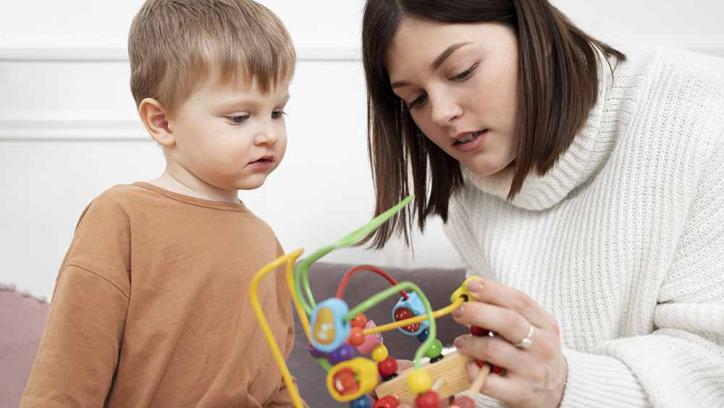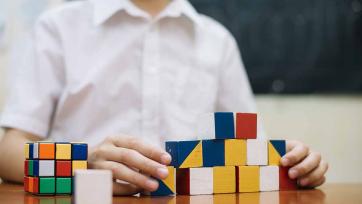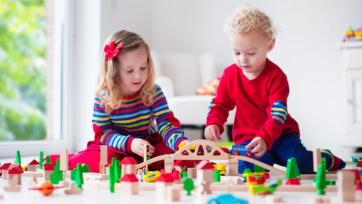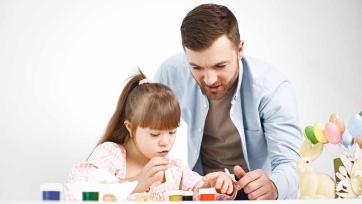Cognitive development is the base on which kids learn things like how to organize data, learn languages, etc. This refers to how a person sees, thinks about, and comprehends their surroundings based on how they were raised and what they have learned.

Children learn about the world by doing important things like sucking, looking around, and listening. During this early stage of cognitive development, children learn from what they see and do daily. All parents must pay attention to their child's cognitive development to give them a good start in life.
Is learning reliant on cognitive development?
Cognitive development is how children learn, think, and figure out things. Children can think about and understand the world around them when they gain knowledge, skills, and attitudes that help them solve problems.
As a parent, it's important to help and guide your child's mental development from the moment he or she is born. This sets the stage for your child's success in school and later life. Research shows that children who can recognize sounds as early as six months old find it easier to learn to read and speak when they are four and five years old.
How to help your child develop his or her mind?
Even though it's not possible to alter a child's genetics, there are different ways that parents can use natural things to help their child learn and grow. Parents can help kids learn by giving them learning games, reading to them, and talking to them. They can also help kids learn about the real world around them. Kids can improve their memory, focus, perception, and attention by doing simple exercises every day.
Children's Educational Activities That Promote Cognitive Development
You must spend quality time with your child every day if you want to help him or her learn and grow. Some examples of this are talking to your baby and naming things often used. Letting your kids play outside and with toys. Reading and singing to your child is a great way to get closer to them.
Getting your toddler interested in books and puzzles. Use different ways to learn to build on your child's interests. If your child is interested in ancient paintings, for instance, you can take him or her to a natural history museum to learn more about the timeline of paintings on earth.
Counting Practice
Look for ways to count and chances to do so throughout the day. When you go to the park, count how many slides or pairs of shoes your child has. You might start keeping track of everything soon!
Shapes and colors are good things to talk about with your child. You can say, "That is one round, red ball" when playing in the yard, or "That sign is a red pentagon" when coming up to a stop sign. When he gets older, you could perhaps ask him to tell you about things.
Traveling
Take Victor to your local children's museum, library, or farmer's market to get him interested and give him "hands-on" experiences. Question him and pay attention to what he says while you're exploring. These trips might be good ways for both of you to learn something new.
Playing with everyday household items is fun, educational, and cheap. Please encourage your child to mix and match lids to the pots they go with, or have him look in the mirror and point to his mouth, eyes, nose, and other parts of his face.
Sing a Song
When you sing a song to a child, they are more likely to join in. If you play the song around him, he will eventually start singing on his own. This helps with remembering words and figuring out what they mean.
Let Them Create
Help your child come up with something new. Show that you like what they made and make them do things that will help them obtain better at it.
Learning Games for Children
Play learning games with your kids every day. Games like naming shapes and colors, counting, practicing shapes and colors, etc.
Work as a team.
Getting kids to work together is a good way for them to learn. Let them assist you with basic housework and include them as a part of it.
Make people think
You can help your child's brain grow by getting them to think. Try getting them to do things that will help them think of ideas and solve problems.
Children's Games with Logic
Please help your child grow by letting him play games and watch shows that teach him how to think logically.
Set Goals
Set small goals for kids and let them make a plan to reach those goals. This will help them learn more.
Improve Character Strength
Try to improve the kid's personality and sense of will to work hard, which will help them be more successful.
Real-Life Problems
It's good for the child to deal with real-world problems because that will help them learn basic skills that will help them live a successful life down the road.
Concentrate on Focus
Focusing on what kids are interested in is among the best ways to help them learn and grow. Find out what your child is interested in, and then try to provide more.
Respond to their questions.
Answering the silly "why" and "how" questions of children is a big part of how they learn. Listen to their questions and try to answer them in words that they can easily understand.
Request Their Option
Getting a child to think about what to do makes them feel important and helps them learn better.
Engage them in projects.
Many websites now offer online education for children with different projects that can be made just for them. Let your kid work on these projects to learn how to solve problems better.
Communicate
Communication with kids is the best way to improve their learning activities. Show them new ways to think, tell stories, and say things that will make people listen.
Conclusion
Give your child a little time to figure out things, like a new puzzle or even a riddle, while giving them some direction and encouragement. This could take some time and patience on your part, but it will help him, or her learn in the long run. How kids learn depends greatly on how their minds grow and develop.
Online learning for kids is a great way for parents who want to help their kids learn and grow mentally to do so. Many websites offer online education to kids and let them try different ways to solve problems. Some kids might take a while to grow up, but it's better to grow up late than never.







